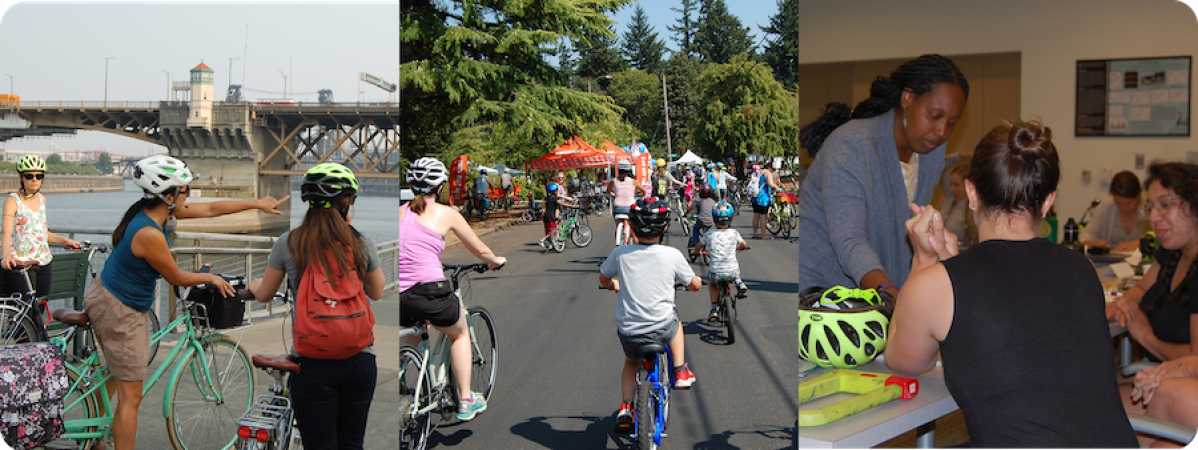About IBPI
A major program of the Transportation Research and Education Center, the Initiative for Bicycle and Pedestrian Innovation (IBPI) advances active transportation research and design for professionals, educators, and university students through training, curriculum development and scholarships.
Founded in 2007, we work with Portland State University faculty in urban studies and planning and civil engineering to conduct interdisciplinary research and integrate bicycle and pedestrian topics into our university courses to support the next generation of professionals. Our location in Portland, Oregon – a national leader in multimodal travel – provides the ideal environment to teach safe, convenient and accessible active transportation and promote a culture of walking and biking.
Through our IBPI program we have worked closely with community partners, policymakers, and consultants, including the City of Portland Bureau of Transportation, Metro, Alta Planning + Design, the Street Trust, and Oregon Walks on collaborative research initiatives.




